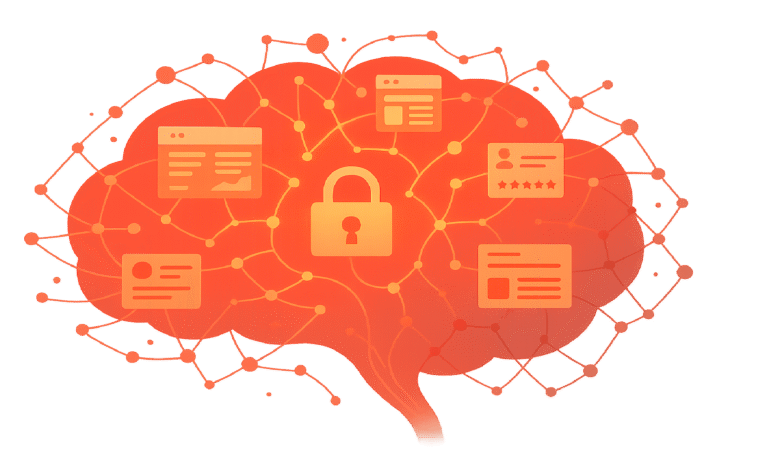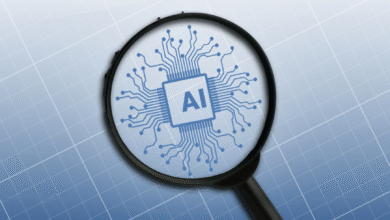Gen Z Drives AI Adoption, Reshaping B2B Buying

▼ Summary
– 86% of Gen Z professionals use AI daily at work, with 69% of all AI users employing it daily and 95% at least weekly, indicating widespread adoption across B2B professionals.
– AI tools are now daily utilities, with respondents using an average of three tools regularly and C-suite executives averaging 3.9, highlighting their hands-on role in AI investments.
– The main drivers for AI adoption are improving efficiency (86%), supporting innovation (57%), and reducing costs (47%), with 78% of companies paying for at least one AI tool.
– AI is reshaping B2B buying, as 46% of users rely on it for primary research and 45% use it in software decisions, with 94% finding it helpful in buying processes.
– Marketers must adapt to Generative Engine Optimization (GEO) by creating structured, detailed content to ensure visibility in AI-generated outputs and maintain traditional SEO strategies.
A new wave of artificial intelligence adoption is fundamentally reshaping how B2B products are researched and purchased, with Gen Z professionals leading this transformative charge. According to recent findings, a remarkable 86% of Gen Z employees now integrate AI into their daily work routines. This surge signals a profound evolution in professional research habits and creates fresh challenges for marketers aiming to capture attention in a marketplace increasingly dominated by generative AI tools.
AI has rapidly transitioned from experimental technology to an essential workplace utility. Data reveals that 69% of professionals using AI rely on it every single day, while a massive 95% engage with it at least weekly. Generation Z demonstrates the highest adoption rates across all age groups. Engineers and product managers are experimenting with the widest variety of applications, whereas finance teams, often bound by regulatory compliance, show more cautious uptake. On average, individuals regularly use three distinct AI tools, with C-suite executives averaging nearly four tools per person, underscoring their direct involvement in selecting and implementing these solutions.
The integration of AI is now considered a standard feature within business software. Although 79% of respondents use platforms like ChatGPT, embedded AI capabilities within other applications are almost as widespread, utilized by 75% of professionals. A mere 9% ignore the AI functions available in their software. The most popular applications include writing assistance, document summarization, and AI-enhanced search. A significant 78% of organizations currently pay for at least one AI tool, a figure that climbs to 90% among large enterprise staff. Microsoft Copilot is seeing extensive enterprise adoption, partly due to the pervasive presence of Windows across corporate environments. The primary motivations for adopting AI center on boosting efficiency (86%), fostering innovation (57%), and cutting operational expenses (47%).
AI is also revolutionizing the B2B purchasing process. Nearly half of AI users (46%) now treat it as a principal research method, frequently bypassing conventional search engines. Furthermore, 45% have utilized AI to inform a software acquisition choice, including 51% of enterprise purchasers. This trend is especially pronounced among senior executives (65%) and Gen Z professionals (51%), illustrating how both initial researchers and final decision-makers are leaning on AI for discovery and assessment. Among those applying AI to buying workflows, an overwhelming 94% reported it was helpful or extremely helpful.
As AI begins to steer many initial purchasing interactions, visibility within AI-generated content is becoming the new imperative for search presence. This shift is giving rise to Generative Engine Optimization (GEO), a set of tactics designed to ensure a brand is prominently featured in AI-produced summaries and answers. Key applications of AI throughout the purchasing cycle include initial discovery (80%), comparing different products (54%), and conducting in-depth evaluations (47%).
To remain relevant, companies are advised to take several strategic steps. They should produce well-structured, comprehensive content that large language models can reference and cite. Investing in user-generated content builds credibility with AI-aware buyers. Maintaining both traditional SEO and new GEO efforts is crucial. Brands must also ensure their content is distributed across multiple platforms to shape how AI interprets and represents them. Finally, advocating for fair value exchange between content creators and AI systems is vital as visibility becomes increasingly dependent on these third-party models.
The broad embrace of AI, particularly among younger professionals and top-tier executives, marks a permanent change in B2B procurement behavior. For marketing teams, aligning content and discovery approaches with this new AI-influenced journey is no longer optional, it is essential for maintaining a competitive edge.
(Source: MarTech)




